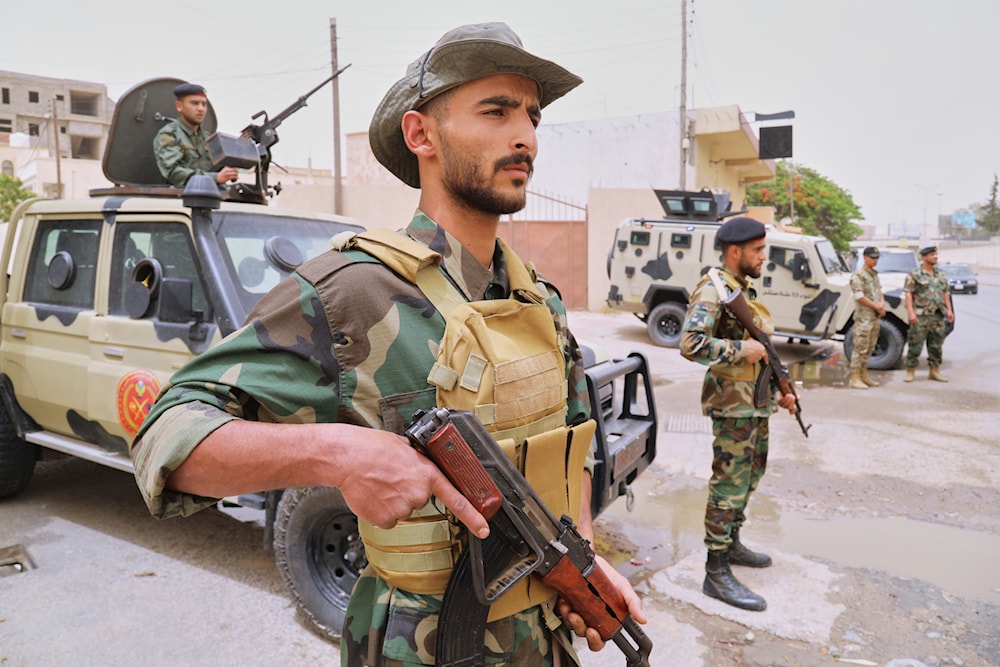Tripoli returns to calm after uptick in deadly violence
Calm is slowly returning to Tripoli after violent clashes between rival armed groups left several dead, as armed factions withdraw, as UNSMIL urges dialogue and stability.
-

A Libyan soldier stands alert at a checkpoint after clashes between heavily armed militias following the killing of a powerful warlord, in Tripoli, Libya, Thursday, May 15, 2025 (AP)
Flights resumed and businesses reopened in Tripoli on Friday as a fragile calm took hold following several days of intense clashes between rival armed groups, with residents finally able to sleep undisturbed after nights of relentless explosions and gunfire, according to a Libyan interior ministry official cited by AFP.
The violence, which erupted earlier in the week, involved factions loyal to the Tripoli-based government and opposing groups it had sought to dismantle, though by Friday, security forces were conducting patrols in key areas as vehicles belonging to armed groups began to withdraw from conflict zones.
The development was described by the ministry as a sign of “good intentions” and a step toward de-escalation.
On Thursday, the UN Support Mission in Libya (UNSMIL) confirmed a temporary “truce” and urged all involved parties to build on it through dialogue.
So-called cleanup operations were launched across the capital to remove barricades, burned-out vehicles, and other remnants of the clashes, which have once again highlighted the fragility of Libya’s security landscape since the 2011 NATO-backed overthrow of longtime leader Muammar Gadhafi.
Earlier in the week, around 1,000 protesters from various neighborhoods gathered in anti-government demonstrations across Tripoli, though no immediate disturbances were reported, and the UN mission had emphasized the importance of respecting the right to peaceful assembly while warning against any further escalation that could jeopardize civilian lives.
Tensions Rooted in Struggles Between Rival Administrations
The latest unrest was triggered by the killing of Abdelghani al-Kikli, leader of the Support and Stability Apparatus (SSA), by members of the 444 Brigade, a faction aligned with the Tripoli government under Prime Minister Abdulhamid Dbeibah, which escalated when the 444 Brigade later engaged in clashes with the Radaa force, a powerful group that controls parts of eastern Tripoli and oversees several key state institutions.
In the days leading up to the violence, the government issued a set of executive orders aimed at disbanding certain armed factions operating in Tripoli, notably excluding the 444 Brigade from the dissolution measures.
Many observers believe that this move contributed to the outbreak of violence that left at least eight civilians dead and drew in armed groups from outside the capital, according to UNSMIL.
Libya remains divided between the UN-recognized government in Tripoli and an eastern administration dominated by the family of military commander Khalifa Haftar, and the ongoing rivalry between these two camps continues to fuel instability across the country. Tripoli often becomes the epicenter of confrontations between competing factions and their militias.
Amnesty International has called for the leaders of armed groups involved in the recent clashes to be held accountable, pointing to a long record of human rights abuses by entities such as the SSA, which it accuses of enforced disappearances, torture, and other violations that have plagued civilians in the capital for years with little consequence or international oversight.

 3 Min Read
3 Min Read








